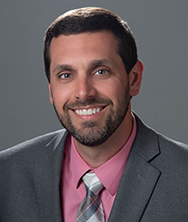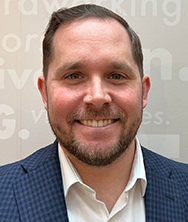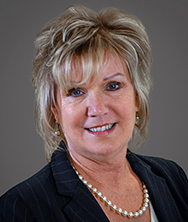YOUNGSTOWN, Ohio –Whether you have a lot of assets or only a few, knowing how to manage what you have can make a big difference in how much you get to keep, how your retirement will look and what your children inherit.
When planning for retirement, your children’s education or a large gift to a charity close to your heart, there are many questions that need answers. And Google is not always the best place to get them.
Many times, Dan Griffith, senior vice president, director of wealth strategy at Huntington Private Bank, says people may have read or heard about something online, but don’t know what applies to them.

“One of the phenomena is most information is ubiquitous,” Griffith says. “You can Google almost anything and get raw data. But what people are really looking for is wisdom.”
That is where a good wealth or financial adviser can help.
“When it comes to advice, a lot of us want to get it right. But the fear that I see in a lot of clients is making sure they don’t get it wrong,” Griffith says. “The benefit of a good adviser is that they keep you out of a position where you are making unwise choices.”

A wealth manager will go over your entire financial picture. How much have you saved and what are your plans?
That can be even more important for those who have yet to earn a lot of money, says Samuel D. Fries, senior manager of wealth management at Schroedel, Scullin & Bestic LLC, a public accounting and strategic advisory firm in Canfield, notes.
“You don’t have to have a whole lot of money to invest, to be able to use some of those services,” Fries says. “It is probably even more important for those who aren’t wealthy, who don’t have a lot of money to invest, that they do some of that financial planning.”
A financial adviser will go over when it makes sense to pay off debt first, what bucket of assets to pull from when you need money and even when it financially makes sense. Take Social Security. A financial adviser can keep someone from making a costly mistake.
NAVIGATING RETIREMENT
At one point, most retirements involved pensions. Most people today, though, take charge of their own retirements either through their companies’ 401(k)s, IRAs or other investments. But most people do not know if they have saved enough to maintain their lifestyle or travel.

“Retirement is different for everybody. So it is looking at each person or each family’s situation differently and tailoring that plan to their situation,” Fries says.
Karen Segesto, vice president, senior relationship strategist with PNC Private Bank in Youngstown, says she likes to sit down with interns and explain the importance of contributing to their 401(k)s, especially if the companies they work for are going to match them.
Segesto believes retirement planning is about understanding the timeline, when to invest more aggressively and when there will be enough money to last.

How much you have saved and whether you have enough depends on your plans for retirement and the investor’s tolerance for risk.
At the time of retirement, Segesto says, she will recommend the client hold off on making major purchases, like a vacation home. At the start of retirement, people often feel as if they have “won the lottery of time” – as she puts it. But they need a better idea where and how they will spend their new found free time.
Unlike past generations who may have saved to pass it all to family, today more people want their retirements to be easier lifestyles.
“We don’t make value judgments for our clients,” says Ryan Glinn, co-founder and managing partner of Tolmiros.
“A lot of our focus is on living your one best financial life,” he says. “Tolmiros is the Greek word for bold. So we want folks who have worked hard to save their money. We want to see them spend it while they are healthy. So philosophically, a lot of the work we do is actually coaching people how to spend their money in the most efficient manner so they can achieve happiness.”
Griffith understands that people today are living longer and want a higher quality of life. Therefore their money needs to last longer. Spending is shifting from buying things to buying experiences. Baby boomers may feel like their children have done well for themselves and instead of giving their money to the children, they are enjoying it and giving it to charity.
CHANGING OPPORTUNITIES, REGULATIONS
Estate planning should be a long-term plan and as someone much younger than the average age of other financial planners, Glinn thinks it advantageous to be younger.
“We plan to have long-lasting relationships that span multiple generations. That long-term planning ties in with estate and legacy transfer. We plan on being here with that for a lot of our clients. Planning for legacy transfer is extremely important these days,” Glinn says. “Leaving the right account types to the next generation can be crucial to mitigating tax pain.”
PNC’s Segesto says when it comes to estate planning, she talks to people about how their assets are titled. For instance, the $12.9 million estate exemption is due to expire at the end of 2025 and she says it will then revert to about $6 million per individual.
With regulations always in flux, an adviser must stay on top of new regulations, something that can be difficult for the average person to do on his own.
“It’s so important to have an adviser who really understands all aspects of wealth. As I mentioned, estate planning, investment planning, budgeting, financial planning. Because the only thing that is constant in your wealth is change,” Segesto says.
“We advise people what we know today … and it’s like adjusting the sails of a sailboat. The winds are choppy and all we have to do is adjust our sails. Make sure your adviser is keeping you informed of the things they know. Work with a good accountant, an attorney and, of course, a financial planner who knows your entire financial picture who can advise you accordingly,” Segesto says
Griffith notes a good financial adviser can offer a couple of options and walk someone through what make sense.
“So it’s truly about peace of mind and that’s where we need to start,” he says. “It sounds like a very numerical analysis but ultimately it is about sleeping better at night.”
